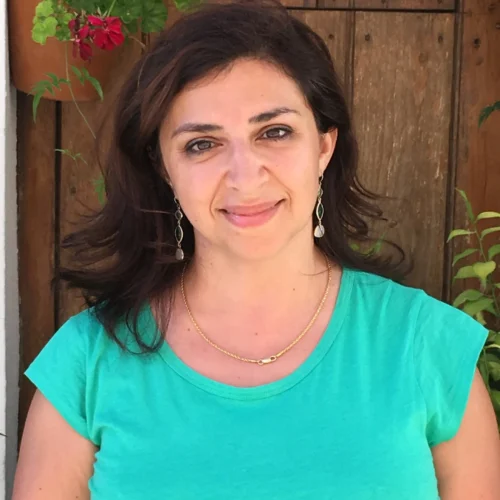Personal Essay
I am beginning to have fewer dreams. Or nightmares; I am unsure what the most accurate description is. I no longer have a normal sleep pattern—most nights, I am scrolling or stationed in front of satellite news reports, watching a tomorrow that has yet to begin where I live unfold its horrors on our people. I have kept this meager vigil for seven months, trying to absorb every fact and detail of the genocide in Gaza. Poet Fady Joudah writes of our dead, “I am a grief capitalist, I claim them all.” While grief animates my vigil, so does distrust. I know not to trust the record-keeping. I watch our deaths disputed, I watch the months, years, crimes, and devastations of seventy-six years that predate October 7th, 2023, erased before my eyes.
Throughout the last hundred years of Palestinian history, our actual archives have been the targets of destruction. In 1948, Zionists, stole 30,000 books from Palestinian homes and libraries, cataloguing them in what became the Jewish national library, many under the label “AP” (abandoned property). When Israel invaded Beirut in 1982, its forces looted the Palestinian Research Center’s archive. “While abyss the echo/While wound the history/While history the wound,” writes George Abraham. On November 29th, 2023, Israel bombed and destroyed the Central Archive in Gaza, which held over 150 years of archival material documenting Palestinian life and culture.
When I do fall asleep at night, it’s usually a short fitful episode, a kind of drowning. In the dream-nightmare, I am always underwater, pushing against wreckage. I find talk of “witness” abhorrent, both for how it relegates us all to voyeurs, and how it absolves us of the responsibility to constantly disrupt the machinery of carnage until we grind it to a halt. For those of us in the diaspora, “bearing witness” removes us from the record, it disappears what we have carried, and reifies the falsehood that what we are enduring today is somehow disconnected from what we have endured before. In the dream-nightmares, the mangled homes of the news reports and my father’s stolen olive groves both inhabit the midnight zone where I am trapped, swimming, but also watching myself, noting how distant the light at the surface is.
I invited Palestinian poets to write on the theme of “archive.” The work of arranging this gathering has laid bare the paradoxes of Palestinian diasporic life and the limitations of an American understanding of it. With one exception, the poets presented in this collection are anglophone writers. When it comes to the con/textuality of Palestinians, American readers are trained in the urgency of now, and so the question arises of locating authors from Gaza, living or dead. This approach suggests a hierarchy of Palestinian experience. But this is not how we Palestinians experience our lives nor how we recount them. Most residents of Gaza, for example, are refugees from other parts of the country. They were driven out of Jaffa or Haifa or Lydd in 1948. And most diasporic Palestinians are refugees. I buried my own father in the United States last summer. He was born before the inception of the state of Israel, he was privileged to die of old age, and he was distinctly Palestinian for not being permitted to live and die in his hometown, Jerusalem. What would an American reading of Palestine make of my life and work, and of my own relatives—once or twice “removed,” as the foreign phrase goes–displaced from or killed in Shuja’iyya neighborhood? Several of the writers in this collection have a parent from Gaza, have childhood memories of the place, or are connected through family, love, marriage or otherwise, to Palestinians from Gaza across the globe. The writers’ past is Gazan, as is their present, their own relatives and beloveds among the 34,000 slaughtered in this genocide.
And so I offer you this Palestinian archive of poems, a record of repeated exiles, of ongoing Nakba, a collection of poems that scrutinize the language rife with hierarchies aimed at undoing us. The poems remind me that an archive is an act of defiant hope, as well as a site of study—a place we will visit in the future, to understand how we have arrived at our inevitable freedom. “We are possible,” A.D. Lauren-Abu Nassar writes, “The sky is full of broken windows and so is the dream.”
